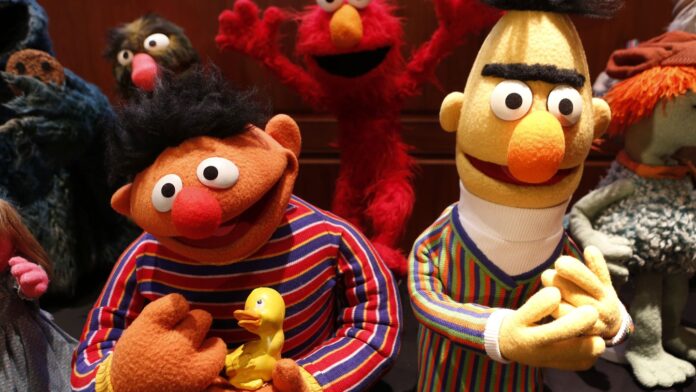By: Alia Wong from The Atlantic
January 7, 2015
Sesame Street was, and in some ways remains, revolutionary in its pedagogy. The show was launched at a turning point in thinking among child psychologists and educators—a time when experts were abandoning the belief that cognitive ability was entirely inherited. The federal government even subsidized the show’s launch. There were other educational children’s programs, such as Mister Rogers Neighborhood and Captain Kangaroo, but Sesame Street was arguably the first in the country to explicitly focus on educational content using a research-based curriculum. The idea was to foster preschoolers’ “intellectual and cultural development” and, perhaps more importantly, to “reduce the educational deficits experienced by disadvantaged youth based on differences in their environment,” according to Kearney and Levine. In particular, the show targeted poor, urban kids—“the ones,” as Newsweek has described, “who lived on streets with garbage cans sitting in front of their rowhouse apartments.”
In that sense, Sesame Street’s virtue could extend beyond cost-effectiveness and scope. It’s notoriously difficult to draw conclusions about the long-term impacts of early education, whether it’s a TV show or a classroom program. Direct, reliable longitudinal data doesn’t exist; even Head Start’s merits are widely disputed. But if nothing else, this new study is a reminder of what’s lacking from today’s preschools: diversity. As The Century Foundation (TCF) recently found, pre-k centers tend to suffer from significant socioeconomic and racial segregation—problems that could be undermining young children’s learning and achievement.
Among boys and black children, a group that has the most room for improvement in academic progress, the researchers extrapolate from the data to reason that exposure to Sesame Street reduced the likelihood of being below grade level by 16 percent. Moreover, Kearney and Levine estimate that, were Sesame Street’s broadcast to be available in all parts of the country, the rate of black children behind grade level would fall by roughly half. The impact would’ve also been sizable for white children: a 30 percent reduction. These findings bolster earlier, disputed data on the show’s academic benefits, including that from cognitive tests suggesting that exposure to the show amounted to the equivalent of an additional year of learning.
Meanwhile, preschool classrooms still tend to lack one of the most celebrated aspects of the show. The observable benefits of diversity mostly have to do with the effect of classroom interactions on cognition, with disadvantaged children demonstrating more literacy skills, for example, when they learn alongside more advantaged peers. But the positive social influences of exposure to diversity at a young age are evident, according to the TCF report.
Source: https://www.theatlantic.com/education/archive/2015/06/sesame-street-preschool-education/396056/
Analysis: There were a few points made in this article: 1) Sesame and diversity — something that schools lack. Sesame Street, created during the civil-rights movement, helped and continues to teach children that it’s okay to be different, everyone struggles with it and you’re not alone. With a diverse neighborhood of monsters, Sesame Street normalized disabilities, imaginary friends, and poverty. There have been countless studies concluding that “kids who watched it extensively formed more positive attitudes toward people from different backgrounds.” 2) Sesame is more accessible; preschool is expensive. Head Start was federally funded and founded so poor children could attend preschool. Like Head Start, Sesame Street also increased the likelihood that kids were ready for school and advanced through their education, but for WAY less. 3) Sesame as a supplement to early education. The first few years are crucial to one’s development. “It found that kids who had better access to the show performed better in elementary school than those who were older at the time it came out or lived in areas where it wasn’t broadcast.”





Hi Aimee, this Sesame Street article points out how Sesame street was one of the first shows to be an educational program and I think now it is part of the norm on TV that many kid shows are educational and try to assist with learning and literacy. I think it is interesting to point out because if people have access to a TV, there is not much other work they have to put in to absorb it. I would be curious if with the rise of streaming services over cable or regular TV if kids are choosing only specific TV shows they like and may be missing out on the diversity of shows or in shows.